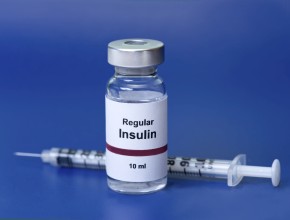Correction
The article was revised on June 11, 2018. The word “first” was added in the following sentence “The rate of infusion could be adjusted in both groups, although in the restrictive group hypotension without clear evidence of hypovolemia could be treated first with vasopressors.” A couple of minor edits were also introduced for clarity.
CV safety of febuxostat vs allopurinol in gout
The use of febuxostat in patients with gout was associated with a higher risk of cardiovascular (CV) and total mortality than allopurinol.
This study investigated CV safety of febuxostat in comparison with allopurinol. Patients included in the study had gout confirmed by the American Rheumatism Association criteria, serum urate levels ≥7 mg/dL (420 micromol/L), and a history of major CV disease.
More than 6100 patients were treated with febuxostat or allopurinol for a median of 32 months. The uric acid control was better in the febuxostat group than in the allopurinol group, and the rates of gout flares were similar (0.68 vs 0.63 per patient-year, respectively). The frequency of prespecified clinical end points, including CV death, nonfatal myocardial infarction or stroke, or unstable angina with urgent revascularization, was similar in both groups (10.8% and 10.4%, respectively). There was, however, an increased risk of CV death and death from any cause in the febuxostat group compared with the allopurinol group (4.3% vs 3.2% and 7.8% vs 6.4%, respectively).
The authors comment that the higher all-cause mortality in the febuxostat group is an unexpected and unexplained observation.
Clopidogrel and ASA in acute ischemic stroke and TIA
Grotta JC. Antiplatelet Therapy after Ischemic Stroke or TIA. N Engl J Med. 2018 May 16. doi: 10.1056/NEJMe1806043. [Epub ahead of print] PubMed PMID: 29766754.
Following a minor stroke or transient ischemic attack (TIA), treatment with dual antiplatelet therapy (acetylsalicylic acid [ASA] + clopidogrel) was associated with a lower risk of major ischemic events and higher risk of major bleeding.
The study included patients who within the previous 12 hours had either a minor stroke or high-risk TIA. Bleeding was excluded on the basis of brain computed tomography or magnetic resonance imaging. The dose of ASA ranged from 50 to 325 mg per day. Clopidogrel was used in a loading dose of 600 mg, followed by 75 mg per day for 90 days.
At 90 days the risk of ischemic stroke was lower in the combined ASA/clopidogrel group than in the group receiving ASA only (4.6% vs 6.3%, respectively), with no difference in the rates of hemorrhagic stroke (0.2% vs 0.1%, respectively). The risk of major hemorrhage was higher in the combined ASA/clopidogrel group than in the ASA group (0.9% vs 0.4%, respectively).
In the accompanying editorial reviewing other studies in the area, the author points out that most of the benefit of ischemic stroke reduction occurred within a few weeks from the original event, but most bleeding complications occurred after the first week. His suggestion is to use dual therapy for a short period of time (suggested 3 weeks) followed by monotherapy.
Restrictive vs liberal fluid therapy in major abdominal surgery
Brandstrup B. Finding the Right Balance. N Engl J Med. 2018 May 9. doi: 10.1056/NEJMe1805615. [Epub ahead of print] PubMed PMID: 29742973.
The recently popular pattern of restrictive fluid management during major abdominal surgery was not supported in a large international trial.
Almost 3000 patients undergoing major abdominal surgery were assigned either to a group with a liberal fluid management strategy (median, 6.1 L) or a restrictive strategy (median, 3.7 L) during and within 24 hours after surgery. Patients were scheduled to undergo at least a 2-hour operation and were judged to be at an increased risk of complications either because of age (≥70 years) or the presence of at least one of the following: heart disease, diabetes, renal impairment, or morbid obesity.
The liberal strategy consisted of a fluid bolus of 10 mL/kg of body weight at the induction of anesthesia followed by 8 mL/kg/h until the end of surgery. The maximal body weight was assumed to be 100 kg. After surgery, the rate of fluid administration was 1.5 mL/kg/h for the first 24 hours. The restrictive group, in the absence of evidence of hypovolemia, received a bolus of up to 5 mL/kg followed by infusion of 5 mL/kg/h during surgery and 0.8 mL/kg/h afterwards. The rate of infusion could be adjusted in both groups, although in the restrictive group hypotension without clear evidence of hypovolemia could be treated first with vasopressors.
There was no difference between groups in the rates of death or disability. Compared with the liberal fluid management group, patients in the restrictive fluid management group had more acute kidney injury (8.6% vs 5.0%), renal replacement therapy (0.9% vs 0.3%), and surgical site infections (16.5% vs 13.6%).
In the accompanying editorial the author presents a cautious conclusion that modestly liberal fluid management is safer than a truly restrictive regimen, aimed at a zero fluid balance.
 English
English
 Español
Español
 українська
українська











